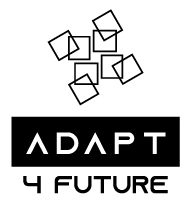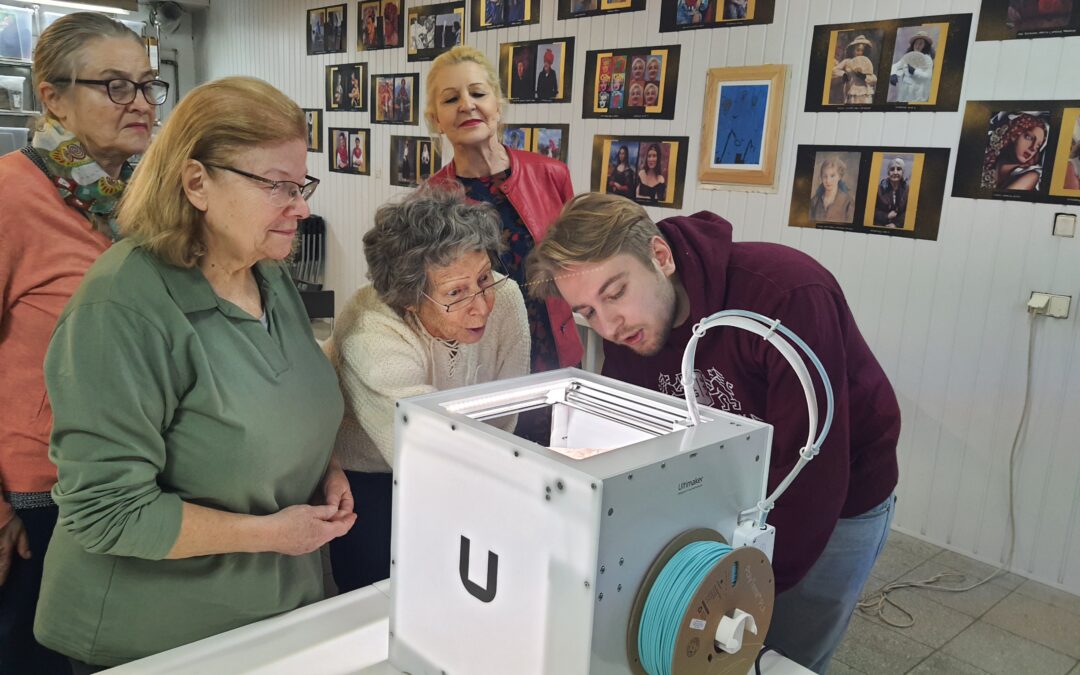INTELLECTUAL OUTPUTS
- A methodological toolkit was developed, including: 1) methodological materials for adult learners on 3D printing technology; 2) methodological guidelines for educators; 3) research tools (questionnaires) and reports from 3 different surveys implemented at different stages of the project.
- Methodological materials can be used during 3D workshops and comprise a series of slide presentations with guided and open projects in a beginner-level software Tinkercad as well as in more sophisticated programme Onshape. The learners are also introduced to the application of the Design Thinking method and encouraged to create a sustainable project by designing and printing a detail or a missing part to repair or upgrade an existing household or similar item.
- Mapping the competencies of adult educators and learners was implemented in the beginning of the project in order to decide on the contents of the learning materials to be developed. Responses were collected from 109 adult learners and 25 adult educators in 3 partner countries.
- Participants’ survey to assess the quality of the workshops and gained skills was implemented via a questionnaire at the end or right after the workshops. The response rate was 96% (205 responses out of 213 participants).
- Ex-post research was implemented 2-3 months after the workshops in order to assess the impact of the workshops on participants’ professional and personal life. It resulted in a 101 response (the goal was to survey about 50% of workshop participants) collected via a questionnaire, and 20 in-depth interviews.
- Research provided us with the feedback about the quality of the produced learning materials and their impact on skill development. All research tools were translated to national languages and can be further used for skill evaluation purposes.
- All elements of the above-mentioned methodological toolkit are available on a Moodle-based platform, direct link: toolkit.adapt4future.gaminu.eu.
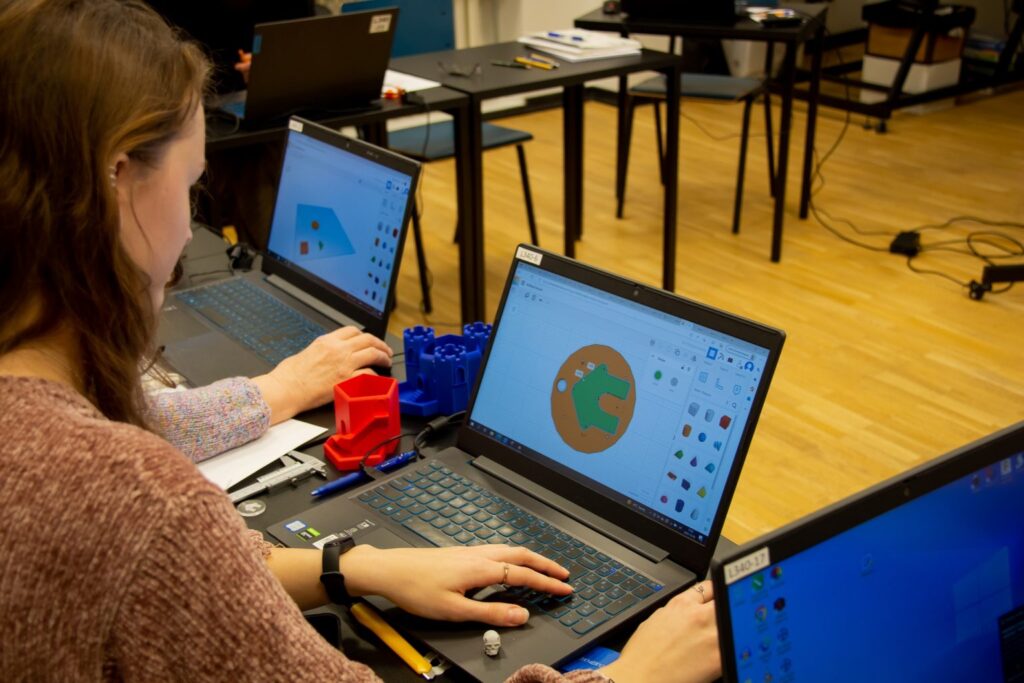

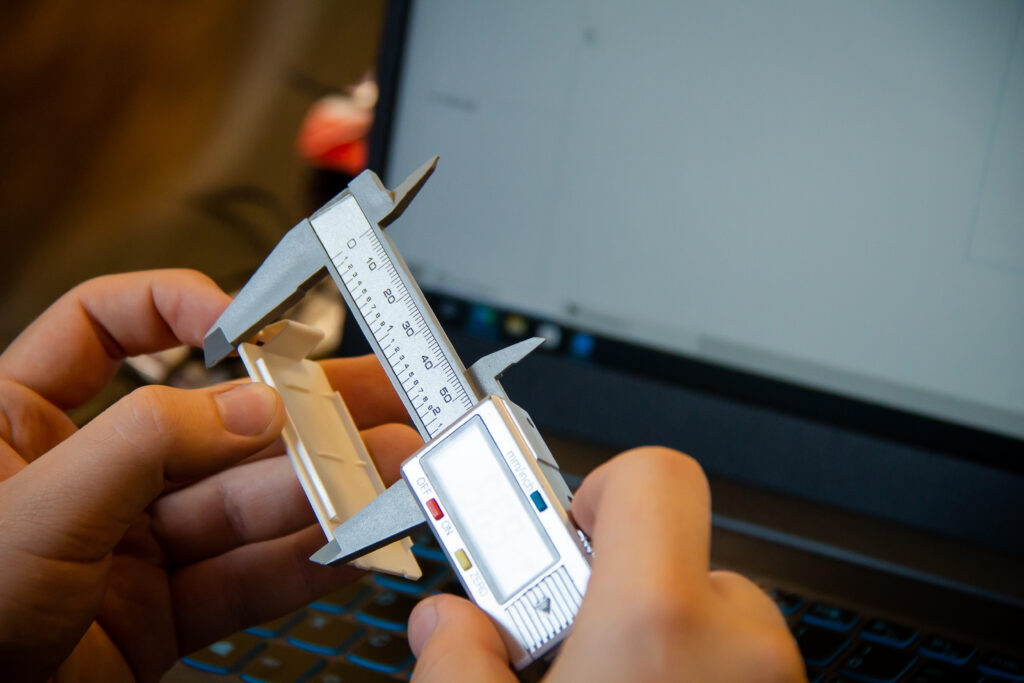
EFFECT ON THE PARTICIPANTS
- Project team members strengthened managerial, organizational, technological, methodological, social, personal, and English skills.
- 15 adult educators developed their competences during a 5-day transnational learning activity, where they were introduced to the contents of the lesson materials, and practiced the design-based learning method.
- 213 target group learners (the plan was to have at least 200), more than half of them with fewer possibilities, were involved in learning activities during local 3D workshops based on the methodology developed in the project and organized by partner organizations in Lithuania, Poland and Italy between December 2022 and April 2023.
- According to the survey, the participants felt that the facilitators were prepared and competent in the field of 3D printing. Survey respondents strongly agreed (78%) and agreed (21%) with the statement that the facilitator(s) knew what he/she was talking about. They also strongly agreed (60%) and agreed (33%) with the statement that the workshops got people involved and interacting.
- Workshop participants significantly developed competencies in 3D modeling and printing. Before the workshops, based on self-evaluation, 44% of workshop participants had no skills and 31% had poor skills in using 3D modeling software to make projects. After the workshops, 46% of the participants said they had good abilities, 22% – very good, and 11% – excellent abilities to use 3D modeling software.
- Adult learners also developed essential 21st century skills. According to the research results, the biggest impact right after the workshops was indicated in the development of critical thinking, problem solving, and innovation skills.
- Based on the ex-post research results, 58% of the respondents found the skills gained through 3D printing workshops either useful or partly useful for their work/professional occupation. 70% of the participants of the in-depth interviews stated that gained skills could help in finding a job and/or for career advancement.
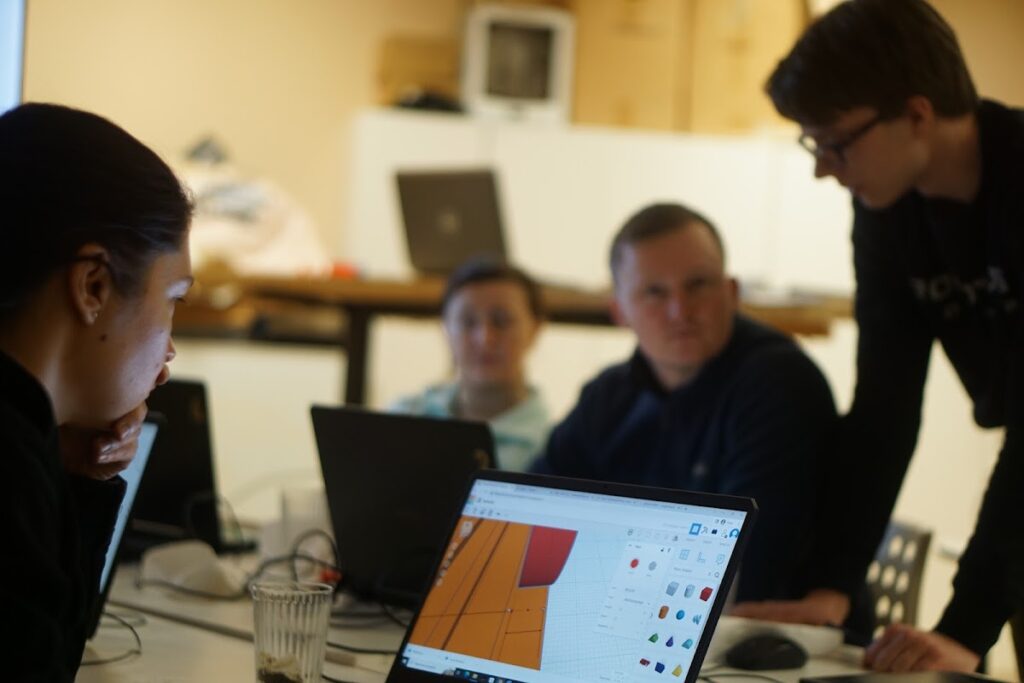
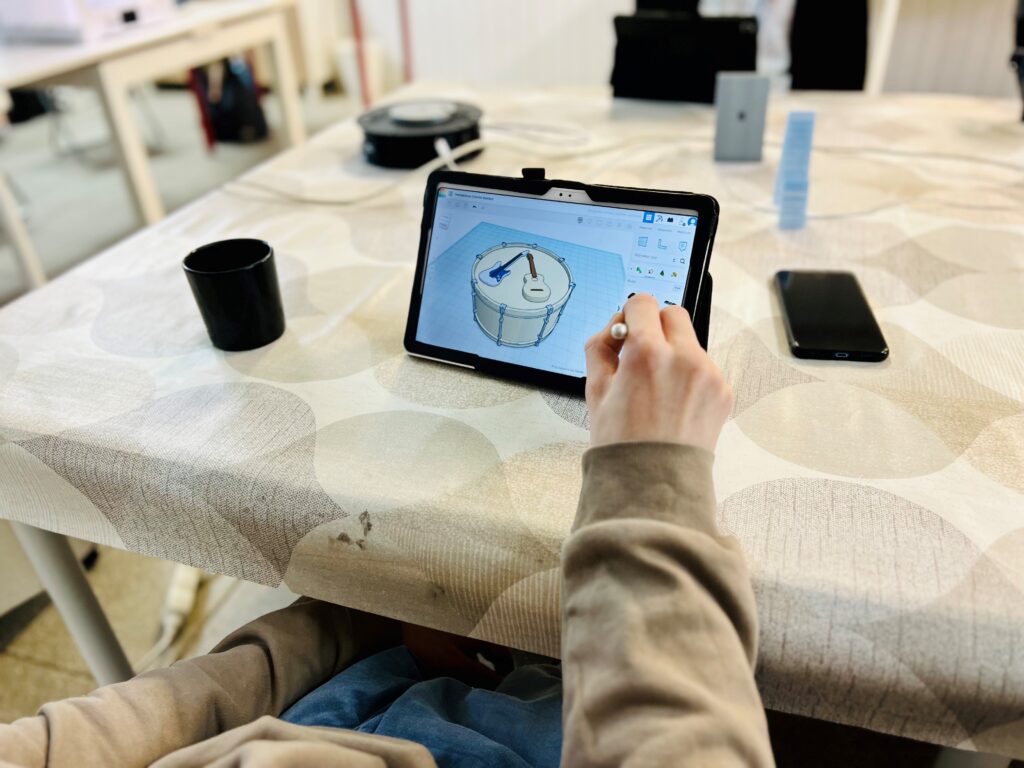
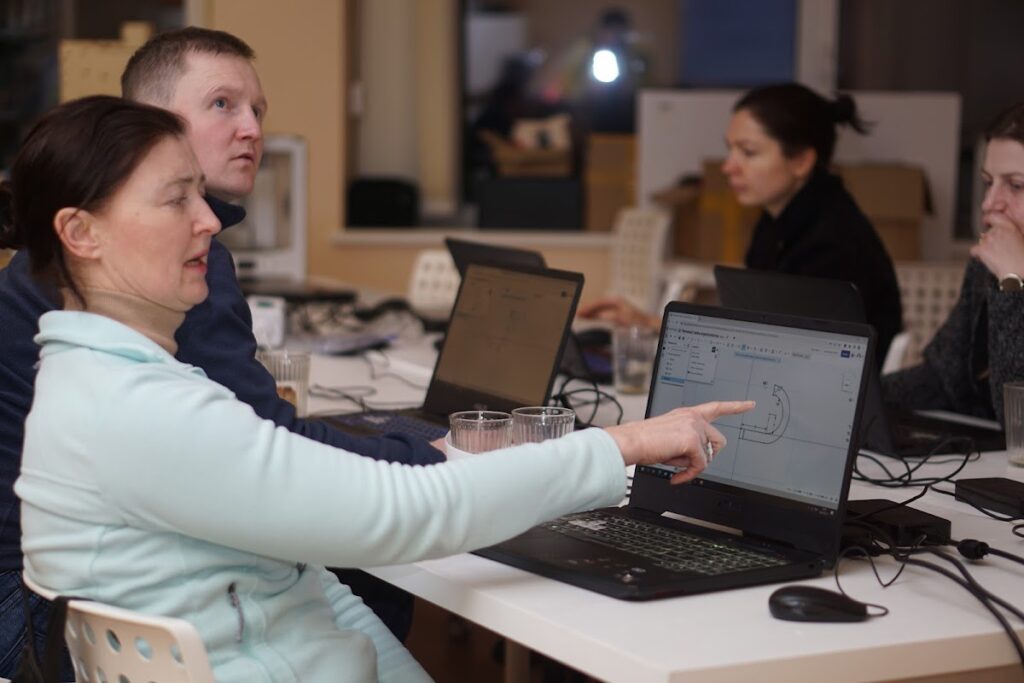
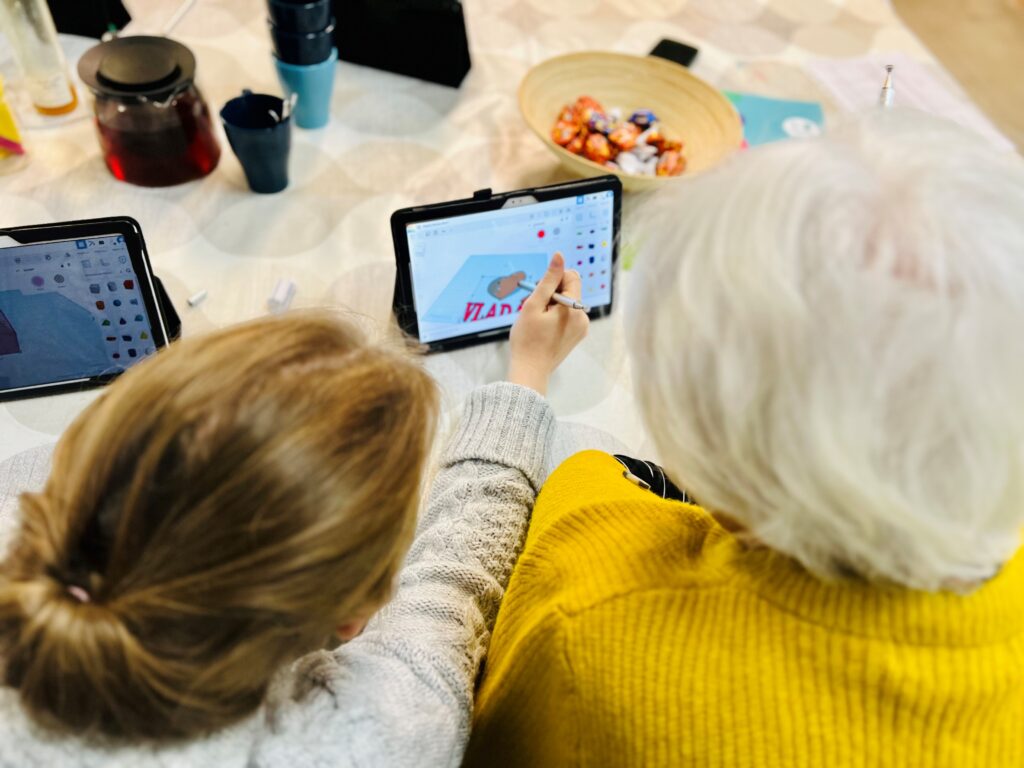
DISSEMINATION
- 20 associated organizations were involved, among them community organizations, NGOs, libraries, educational institutions, employment office, district council, etc.
- Since the start of the project until mid-December 2023, 779 new virtual learners registered on Moodle platform play.gaminu.eu (in the application, it was planned to have 500 new users).
- 130 adult learners and educators as well as learners from other age groups, teachers, and local citizens were involved in multiplier events in 3 partner countries (it was planned to have 90 participants).
- Project’s website adapt4future.gaminu.eu and project logo were developed for the representation of the project.
- Project’s dissemination at local, regional, national and international levels included more than 40 articles/blog/news feed posts on the project’s and partner websites, and almost 40 social media posts.


